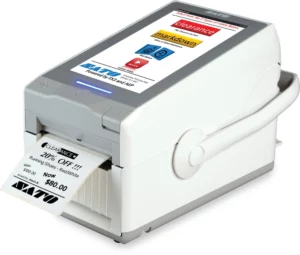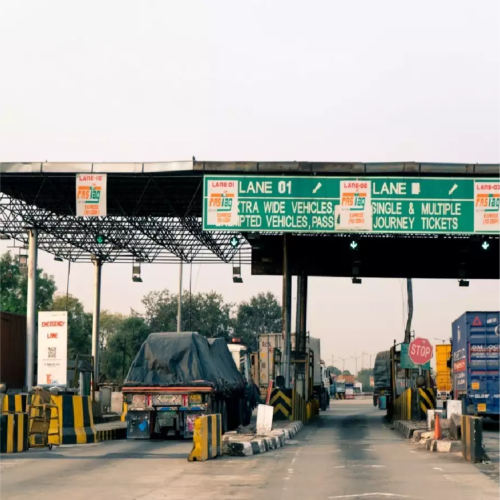Expanding a supply chain operation usually occurs when a company experiences growth. However, with that growth stems a bigger need for more precision and accuracy at each stage of the supply chain.
Tracking and management are the most popular applications for RFID in Supply Chain Management. Inventory management, asset monitoring, freight and supply chain logistics, and vehicle tracking are all examples of this. RFID may also be used to increase visibility and distribution in the supply chain. Limited visibility combined with mistakes can put a company’s production on hold and reduce its overall efficiency. Receiving time is reduced by 90% for manufacturers and distributors that use RFID technology in their supply chain.
In this article, we will discuss the integration of RFID Technology in supply chain management and its benefits to highlight its status among businesses and operations today.
Benefits of RFID Technology in Supply Chain Management
Enhances Visibility
RFID allows companies to trace their supply chains, resulting in more relevant data for manufacturing equipment, inventory, asset management, and business processes. When used effectively, the generated data can help in the automation of important supply chain processes.
RFID can be utilized to help simplify a range of supply chain operations. RFID technology allows processes that would normally take two hours to be accomplished in a matter of minutes.
Having the data created by RFID integration at your fingertips enables you to make faster, more informed decisions, which may significantly improve your supply chain management efforts. This level of transparency enables operations to be entirely automated, removing the possibility of human mistakes.
Reduces Labor Costs
RFID takes supply chain automation to new heights, lowering labor costs throughout the process. RFID technology’s effectiveness in supply chain operations cannot be emphasized enough. It highlights the importance of labor in supply chains, and even minor reductions are considered for cost savings.
Truck drivers, for example, can easily finish their weighing process by simply placing their RFID tag next to the reader and receiving a printed ticket in return. Furthermore, RFID promises the introduction of self-service checkouts without the need for an operator.
Increases Productivity
The biggest disadvantage of barcodes is that they must be seen to be scanned. Walking to the product, looking for the barcode, and then using the scanner to decode it takes a lot of time. RFID in Supply Chain Management addresses this problem by employing radio frequencies to ‘ping’ the product’s position.
RFID tags cut the time it takes to find and track things in half. Furthermore, reducing the amount of time spent looking for items reduces personnel expenses and can also enhance overall facility productivity.
Tracks Inventory in Real-Time
A real-time supply chain management system and sophisticated wireless networking technology are integrated into an RFID in a Supply Chain Management system. As a consequence, you’ll always have up-to-date information about the items in your warehouse. RFID scanners installed at the entrance to a warehouse will offer real-time information on various products, important items, and individual objects that enter and leave.
Integration of RFID Technology in Supply Chain Management
Integration
The supply chain is only as good as the communication that runs through it. To maintain a smooth operation at all stages and settings, accurate, up-to-date information must be transmitted instantly to suppliers, warehouses, and transportation providers.
RFID tags help with integration by quickly gathering important information about materials and products in transit. When this data is important, well-designed RFID systems will effortlessly convey it to the necessary supply chain partners and other parties.
Operations
Daily supply chain operations have a tremendous influence on how efficient — and ultimately profitable — a supply chain can be. However, this might be difficult to monitor. RFID technologies, which give real-time insights into common operations, address this issue. These techniques can pinpoint the precise location of bottlenecks. Such issues have the potential to cause significant delays if they are not identified and addressed promptly.
RFID scanners make it simple for businesses to track the flow of items in warehouses. Because organizations obtain real-time information regarding warehouse activity, inventory management becomes substantially more efficient.
Purchasing
RFID technology provides you with real-time insight over semi-finished items and in-stock raw materials when you integrate them into your supply chain management.
Aside from that, RFID helps you to ensure that everything in the shipment is in accordance with your specifications, minimizing time spent at the receiving stage and allowing items to be forwarded to the production stage sooner.
Distribution
Controlling quality, managing budgets, and meeting agreed-upon service standards are all critical for transportation organizations. Effective logistics enable this, whether it’s delivering finished goods to warehouses, delivering raw materials to manufacturers, or delivering individual things to customers.
RFID in Supply Chain Management gives a cost-effective way to increase earnings by increasing efficiency. Furthermore, improved supply chain visibility leads to increased accuracy. In today’s competitive economy, when demanding firms and customers allow little room for error, this is critical.
Buying An RFID Supply Chain Management System
Here’s where you can find out more about our firm and how to get started with RFID for Supply Chain Management implementation.


